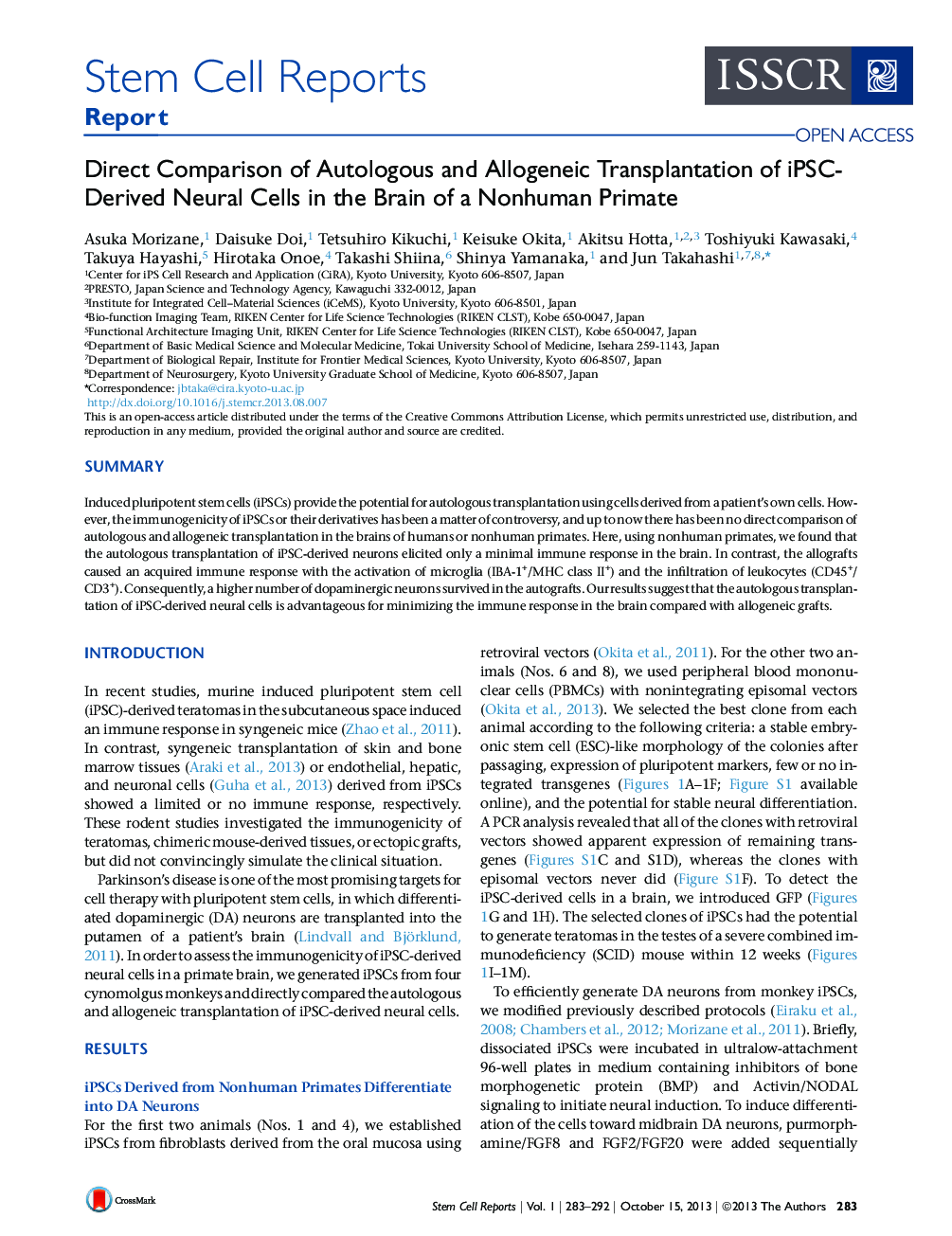| Article ID | Journal | Published Year | Pages | File Type |
|---|---|---|---|---|
| 2093838 | Stem Cell Reports | 2013 | 10 Pages |
•iPSC-derived autografts cause only a minimal immune response in the primate brain•Autografts have advantages over allografts even at an immune-privileged site•Dopamine neurons survive even in allografts without immunosuppression
SummaryInduced pluripotent stem cells (iPSCs) provide the potential for autologous transplantation using cells derived from a patient’s own cells. However, the immunogenicity of iPSCs or their derivatives has been a matter of controversy, and up to now there has been no direct comparison of autologous and allogeneic transplantation in the brains of humans or nonhuman primates. Here, using nonhuman primates, we found that the autologous transplantation of iPSC-derived neurons elicited only a minimal immune response in the brain. In contrast, the allografts caused an acquired immune response with the activation of microglia (IBA-1+/MHC class II+) and the infiltration of leukocytes (CD45+/CD3+). Consequently, a higher number of dopaminergic neurons survived in the autografts. Our results suggest that the autologous transplantation of iPSC-derived neural cells is advantageous for minimizing the immune response in the brain compared with allogeneic grafts.
Graphical AbstractFigure optionsDownload full-size imageDownload as PowerPoint slide
